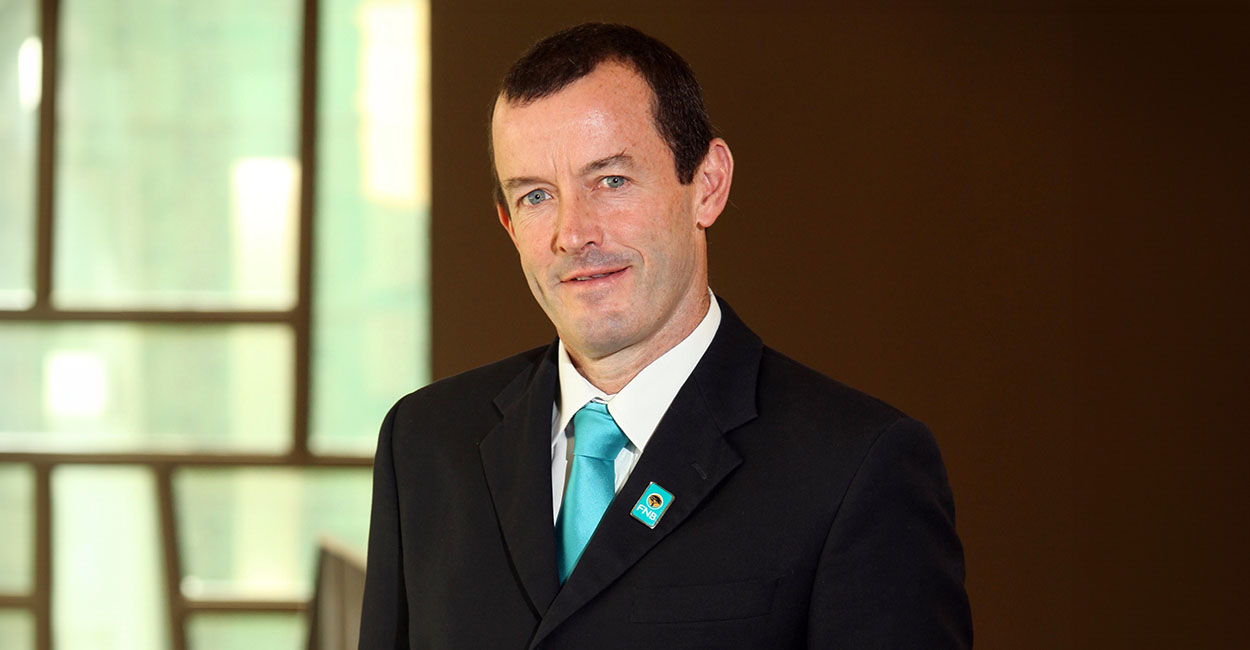MAIN IMAGE: Samuel Seeff, chairman of Seeff Property Group; Shaun Minnie, founder and CEO of Blok; Tony Clarke, MD of Rawson Property Group; Richard Gray, CEO of Harcourts; and Michelle Cohen, principal property practitioner at Leapfrog Property Group Johannesburg North East.
Editor
The National Association of Realtors (NAR), the largest trade association in the country, recently announced an agreement to end litigation of claims brought on behalf of sellers related to broker commissions. Under the terms of the agreement (once accepted as it is still subject to court approval), the NAR would pay $418 million (R8,034,085,400) over approximately four years.
What happened?
Samuel Seeff, chairman of Seeff Property Group, explains, “I’ve been following the Sitzer-Burnett case for the last few years. The case outcome presents a new look at how the selling agent deals with commissions. Previously, the selling agent was required by NAR to offer the buyer agent a split fee when listed on the MLS (Multi Listing Service), and the case was to judge whether stating the commission upfront was uncompetitive. The outcome is to now delink the commission split between the selling and buying agent”.
Shaun Minnie, founder and CEO of Blok, based in the US, explains his view on the NAR’s decision to settle, “The NAR had no choice. To appeal the verdict, NAR would have to post a bond to ensure it has set aside the necessary funds should it lose the appeal. The judge determines the sum of a bond, typically the amount of the judgment plus interest. Under antitrust law, judges can treble the damages to award plaintiffs up to three times the judgment amount. That means NAR would have been on the hook for its portion of up to $5.4 billion in damages, so given the size of the judgment, it would have been beyond NAR’s ability to pay.
Sadly, I believe this is about lawyers getting a huge payday; the plaintiffs will only get about $20 each, and a very secure and equitable real estate buy-and-sell process will be upended to buyers’ and sellers’ detriment.”
Giving us their perspectives on what this settlement means for the US, and whether there are any implications or learnings for South African estate agents, are Seeff, Minnie, Tony Clarke – MD of Rawson Property Group, Richard Gray – CEO of Harcourts, and Michelle Cohen, principal property practitioner, Leapfrog Property Group Johannesburg North East.
Do you think the uncertainty/upheaval caused by the legal actions and settlement will lead to a new dispensation or approach?
Minnie: If approved, it will cause confusion in the market in the short term. More than 70% of home buyers still believe they should have someone representing their interests when buying a home. Those buyers who need representation most, first-time buyers, and less financially sophisticated buyers who need to pay for and cannot afford representation in the new dispensation may well bear the brunt of the change. I expect a steep increase in transactions failing and post-transaction litigation when buyers are not represented. In the longer term, four to six million transactions will close each year; good real estate agents will continue to manage most of those on behalf of their clients, and a robust free market will have it worked out.
Clarke: My answer is simply yes, but in the USA only because there’s no recommended tariff or structure that estate agents employ in South Africa. South African estate agents are competitive; they can choose their own pricing structures or commission rates and do not adhere to a recommendation by any institute or association”.
Gray: The USA has historically operated very differently to us. One of the key differences was the dominant position of MLS’s in the USA, who are at the heart of the litigation claims. MLS’s were popular here until around 2013 but have largely disappeared since then, apart from some small pockets. The USA model is also characterised by having Seller Agents and Buyer Agents, another concept which is not very common here. Finally, the South African model is already very consumer friendly. Unlike in many countries, like Australia and New Zealand, the South African estate agency pays all the costs of marketing a property whether they sell the property or not. In other words, commission is only earned on success and the seller does not contribute to the marketing of the property.
Seeff: In a sense the change in the USA now aligns it to how SA has always operated.
Our local commission structure may work differently, but given the economic pressures in SA, do you think agents’ commissions could be under threat or could we see a shift towards a different model?
Tony: My response to that is that traditional real estate agencies and agents will need to differentiate their offerings by providing exceptional service, specialised knowledge, premium experiences and good customer service to justify traditional commission models. But I don’t think that commissions are under any threat because a well-trained agent that is powered by technology and good data is the agent that sells the property at the highest price.
Sellers feel that their commissions of between 4 and 5% are justified because they end up with a higher net effect due to the excellent service and sales skills of that particular agent.
Richard: Commission is always under threat and pressure to accept lower commission seems to be higher in weak trading conditions like we find ourselves in currently. However, a good agent who fetches the right price for a property for their seller is worth their commission. If one calculates the cost to a seller of accepting a lower price for their property, because a “cheaper” agent has not marketed their property to its maximum potential, the commission saved will generally be far less than the proceeds lost on the sale by the seller. We have seen several commission models come and go over the years, but at the end of the day, the success-based variable percent commission model charged by a competent agent with strong, effective marketing of a property comes out on top every time.
Samuel: In terms of pressure on commission, we have already seen that for some time, and broadly speaking, the average commission rate has come down from 7%-7.5% to around 4%-5% plus VAT, and even lower in some instances depending on the property.
Michelle: I think it may be under threat. It feels like, due to the economy and financial pressure, people are counting every cent, and we are cutting our commissions drastically to make things work. I don’t agree that the straight flat fee is a workable solution, but the PPRA could, like the law society, have a chart with different fee structures and tariffs on different sale amounts, as the attorneys do. This would be something that is made public knowledge and takes away from negotiating commission at the point of sale.
Do you foresee new or low-commission models waiting in the wings that will now quickly become the norm?
Minnie: With buyers’ agents needing to negotiate commissions directly with their buyers, it is likely that commission compression will occur. However, experienced and skilled agents will be able to convey their value and successfully navigate the challenge. Newer agents, on the other hand, will struggle, leading to a potential exodus from the industry, which in turn means the true real estate professionals will be getting a greater slice of the pie”.
Tony: For the 32 years that I’ve worked as a real estate agent, there have always been low commission models with agencies that have entered the market, closed down, returned, and then closed down again. The real question is whether these agencies are adding any value to their sellers. Low-cost models come with low-cost marketing – now, is that good for the seller? Can they, with a lower fee structure, obtain the right buyer for that property? Marketing a property costs a lot of money to be able to spread your net wide enough to catch the attention of the willing and able buyer and the idea is to get not just one willing and able buyer, but a few to create a demand for that specific property so that the best selling price can be achieved.
Samuel: No, in fact been tried and tested by a flurry of quick growth and quick demise low commission and flat fee models such as Homebid and Leadhome. Many had argued that the rise of the internet would impact real estate commissions in the same way that travel agents were impacted. Think, for example, of flights that most people now book online. We, therefore, witnessed a flurry of low-cost operators entering the local property market with various offers looking to disrupt the industry. While there was much hype initially, the reality is that they have mostly disappeared as it has proven to be an unsustainable business model.
Low commissions are not in the interest of the industry, especially where it is a shared deal, simply because it is an unsustainable business model for both the agent and the agency. Consider, for example, a shared deal where a commission of 5% must be split between two agent parties, each getting 2.5% out of the deal. That 2.5% must then be split between the agency and the agent. The net effect is that what the agent and agency earn out of the deal is simply not sustainable enough to cover the operational costs of either the agency or agent, let alone provide a compensatory incentive.
Low commission models only really work when dealing with similar properties, such as a number of units in a development. As soon as dealing with more nuanced properties that are dissimilar, the skill of a top realtor is required to ensure that a deal is concluded with maximum efficiency and success.
Discounted commission models also often do not offer a real advantage for low-end, sub-R1.4 million properties where you might find the commission charged by a traditional agent is quite comparable to what these low commission or flat fee models offered, but you get much more by using a traditional estate agent.
Michelle: It is possible, but they would need to do volumes to survive and they would need excellent agents who aren’t necessarily money-driven, which is not a very common combination.
Richard: No, however, we expect that agents offering an inferior service may try to justify this by charging less. Sadly, the seller suffers in the long run as they either fail to sell their property or end up accepting less than they should.








